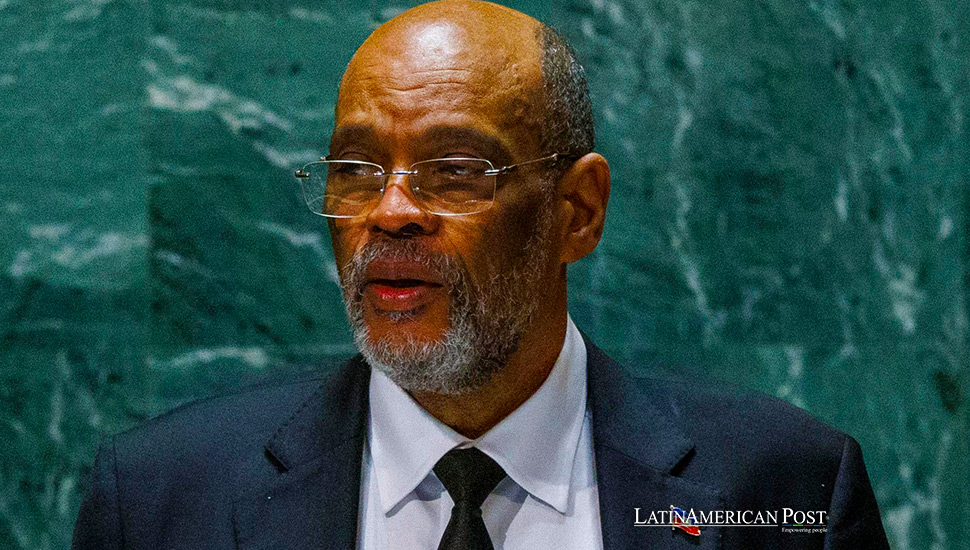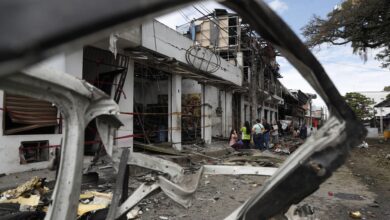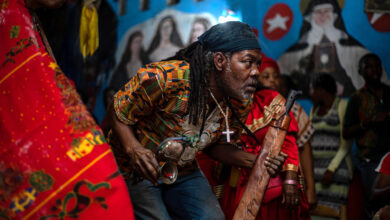Haiti’s Ariel Henry’s Tumultuous Tenure

Amidst Haiti’s political chaos, Prime Minister Ariel Henry’s resignation amplifies the nation’s turmoil. Gang violence, assassination, and political unrest characterize his brief tenure, leaving Haitians grappling with uncertainty and instability.
In the heart of the Caribbean, Haiti, the first independent nation in Latin America and the Caribbean and the only country in the world established as the result of a successful slave revolt finds itself in the grip of profound political upheaval. At the center of this maelstrom is Ariel Henry, a neurosurgeon turned politician whose tenure as Prime Minister has been marked by crisis after crisis.
Ariel Henry’s Ascension Amidst Chaos
Henry’s journey to power began in July 2021 amidst mounting public unrest against then-President Jovenel Moïse. Accusations of overstaying his term and widespread protests rocked the nation’s capital, Port-au-Prince, painting a picture of a country teetering on the edge of chaos. Moïse, often invoking rhetoric about shadowy forces conspiring against him, faced increasing pressure to step down. Yet, before any resolution could be reached, tragedy struck in the form of Moïse’s brutal assassination by a group of Colombian mercenaries.
In the aftermath of Moïse’s assassination, Haiti found itself in a state of confusion and uncertainty. As the nation grappled with questions of leadership and stability, Henry emerged as a figure thrust into the spotlight. However, his ascent to power was marred by controversy and delays. It took nearly two weeks for him to be formally sworn in as Prime Minister, during which Claude Joseph, his predecessor, assumed temporary leadership.
Challenges and Disillusionment: Henry’s Troubled Tenure
Despite his promises to restore order and hold new presidential elections, Henry’s tenure was plagued by a lack of progress and growing disillusionment among the Haitian people. The specter of gang violence loomed large, exacerbating an already volatile situation. With each passing day, Haiti seemed to slip further into turmoil, with Henry struggling to assert control amid escalating tensions.
The tipping point came in February of this year, as Haitians took to the streets en masse to demand Henry’s resignation. Frustration boiled over, fueled by the prospect of enduring another year and a half under his leadership. His announcement of plans to hold elections by August 2025 only further enraged protesters, who saw it as a blatant attempt to cling to power.
Also read: The Story of Haiti’s Descent into Chaos Gang Dominance
Meanwhile, Henry’s diplomatic efforts abroad, particularly his visit to Kenya, raised suspicions among his critics. Amidst discussions of international intervention to combat Haiti’s rampant gang violence, concerns arose that Henry might be seeking foreign support to shore up his authority. The subsequent surge in gang attacks coinciding with his trip to Nairobi only deepened these suspicions, further eroding trust in his leadership.
The Inevitable Resignation: Haiti at a Crossroads
As gang violence paralyzed the capital and effectively trapped Henry in Puerto Rico, his resignation became inevitable. With his departure imminent, Haiti stands at a crossroads, grappling with the fallout of Henry’s tumultuous tenure and facing an uncertain future. The road ahead is fraught with challenges, yet amidst the chaos, there remains a glimmer of hope for a nation long accustomed to adversity.




